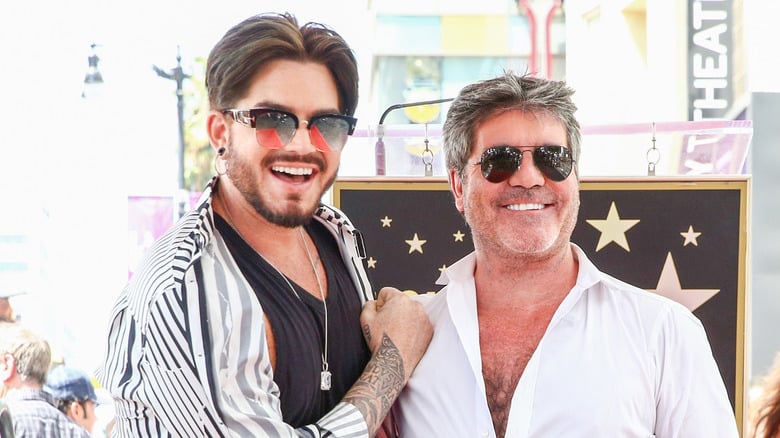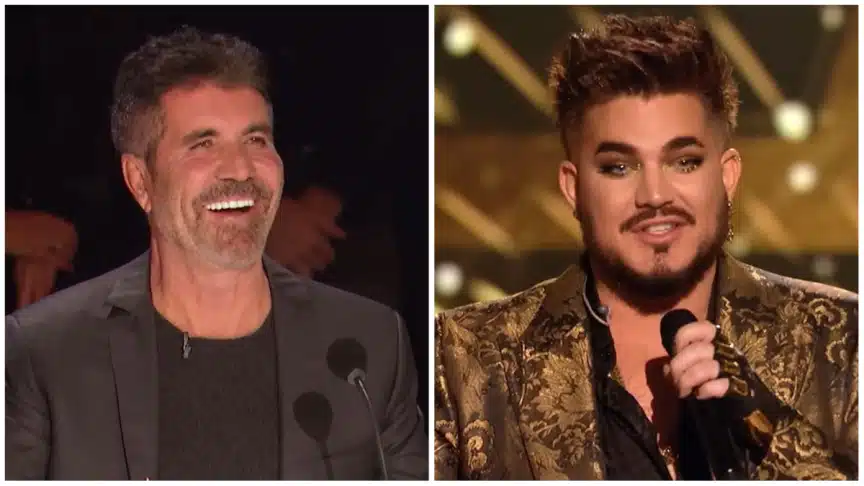Adam Lambert and Simon Cowell: From Idol Tension to Hard-Earned Respect
When Adam Lambert stepped onto the American Idol stage in 2009 with a daring rendition of Queen’s Bohemian Rhapsody, it was clear he wasn’t your average contestant. His soaring vocals, magnetic presence, and theatrical flair signaled the arrival of a true star. But behind the scenes, Lambert’s rise was shaped as much by his talent as by his complicated dynamic with one of the show’s toughest critics — Simon Cowell.
Looking back, Lambert has spoken candidly about his time on Idol, especially the lack of LGBTQ+ representation in the early seasons and the friction he experienced navigating that space. Surprisingly, he’s also credited Cowell — infamous for his no-holds-barred critiques — with preparing him for the harsh realities of the music industry.
When Lambert auditioned, delivering the performance that would eventually define him, Cowell’s reaction was underwhelming. He called Lambert “theatrical” — a comment that felt coded and dismissive — and questioned whether his style could find a place in mainstream pop. For Lambert, who never hid his identity or artistic boldness, that skepticism stung.
Still, Cowell voted him through, and the complicated mentor-critic relationship began.

As the season progressed, Cowell’s blunt feedback pushed Lambert to sharpen his performance skills and vocal delivery. The criticism wasn’t always easy to hear, but Lambert has since acknowledged that it toughened him up for life beyond the Idol bubble. “Simon was testing me,” Lambert said in a 2018 interview. “This business is ruthless. If you can’t take honesty, you won’t survive.”
Though Lambert sometimes felt the show failed to embrace LGBTQ+ contestants authentically, he eventually saw Cowell’s tough-love approach as a kind of proving ground — a crash course in surviving the industry’s scrutiny.
By the time Lambert reached the finale, Cowell’s tune had changed. While Lambert ultimately placed second to Kris Allen, Cowell praised him on national television, calling him “fearless” and “unique.” He even predicted a successful career beyond the show. “He’s got swagger,” Cowell told Oprah — words that hit especially hard coming from a man not known for flattery.
“When he said I had become a star, it hit me,” Lambert later recalled. “That was a real moment.”
In the years since, the two have found mutual respect. Their interactions during the 2018 Idol finale were far warmer, and Cowell later admitted he had misjudged Lambert’s potential early on. More importantly, he recognized how much the industry — and he himself — needed to grow in how they treated queer performers. “He figured it out,” Lambert said. “It’s not okay anymore to treat people that way.”
Lambert’s reflections reveal not just his personal growth, but the larger cultural shift within entertainment toward greater inclusion and empathy.
Now fronting Queen on global tours, Lambert’s journey stands as a testament to resilience, authenticity, and talent. And in a full-circle twist, he credits Cowell’s early pushback with building the confidence and edge that carried him through the highs and lows of a demanding career.
Their story is one of transformation — both personal and professional — showing how even the harshest voices can evolve, and how fierce critique, when met with self-awareness, can lead to unexpected respect.
Lambert’s experience reminds us that growth isn’t just about talent — it’s also about navigating pressure, owning your identity, and rising even when others doubt you.
